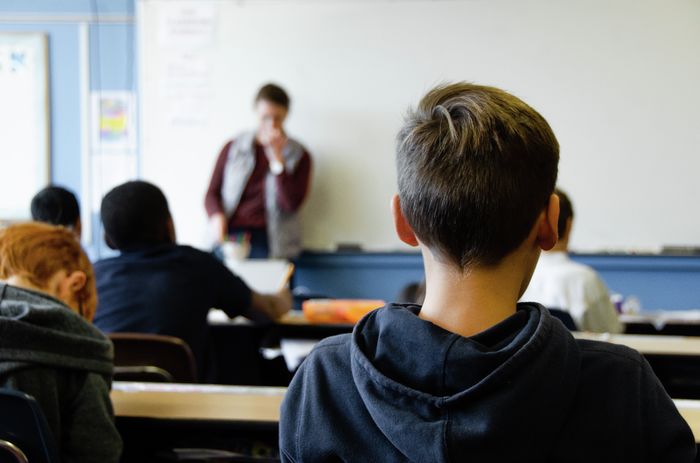The scientific benefits of practising gratitude
Why you should make a habit of being grateful and the best methods of doing so

Recent studies have found that the experience of receiving gratitude from others can have a very potent effect on our brain, including promoting pro-social neural circuits and inhibiting their antagonistic counterparts — which, in turn, has a number of powerful effects on our wellbeing.
Our brains contain a number of neural circuits which can be categorised into “pro-social” and “defensive”. Pro-social circuits are associated with the behaviours or ways of thinking that allow us to have more effective interactions with the things we seek out in life: social interactions with other people; the company of pets; eating food etc. Pro-social cercuits bring us closer to others when activated to a higher degree. Defensive circuits, however, involve areas of the brain associated with things like freezing or fear.
These circuits have an antagonistic relationship, such that when pro-social circuits become more active, defensive circuits decrease in activity — you can imagine these as being balanced on a pair of scales. Activating pro-social circuits is harder and requires effort, making these "scales" naturally tilted in favour of defensive circuits — presumably because they are designed to keep us safe, so our evolutionary instinct is to initially favour defensive behaviours.
However, multiple studies have found that regularly performing an effective gratitude practice will increase activity in pro-social circuits and decrease activity in defensive circuits — significantly improving our mood, even on days when we don’t perform this practice.
People who participate in a regular gratitude practice report feelings of happiness, more meaning, joy — even awe for their life experience.
One study found that a regular gratitude practice can shift the functional conductivity of emotion pathways, such that circuits for anxiety and fear are less likely to be active, and feelings of well-being and motivation are significantly increased.
Experiencing gratitude benefits your social relationships with everyone, not just the relationships with people who have expressed gratitude towards you.
Experiencing gratitude benefits your social relationships with everyone
Gratitude can even help with trauma: it can provide a re-framing or resilience to prior traumatic experiences, and act against any traumas that may arise in the future – all by shifting the way that fear and defence neural networks work.
So how exactly do you practise gratitude effectively? Research has found that you can elicit a powerful sense of gratitude by spending just a few minutes imagining what it feels like to receive genuine thanks from someone else. This is most effective when grounded in a story, because of the way the brain responds to a narrative. There are two ways you can do this.
The first way involves picking a memory of a time when you received genuine thanks from someone. Write down a few simple bullet points to act as key reminders for the story (e.g. how you felt before and after receiving gratitude), then spend 1–5 minutes reading these bullet points and getting into the story. Really try to relive how it felt to receive that gratitude.
The other method involves using a story where you observe someone else receiving/expressing thanks, and imagining what it feels like to be on the receiving end of that gratitude. One study utilised this by drawing from the stories of Holocaust survivors, where many survivors were sheltered by strangers or received lifesaving food and clothing, and reported extremely strong feelings of gratitude. The participants were asked to place themselves in the context of the Holocaust and imagine what their own experience would feel like if they received such gifts from strangers.
Repeating this 2–3 times a week will result in a lasting increase in the activity of pro-social circuits, and actually has the potential to become more potent with practice. The time of day you do this does not matter, and you can use the same story each time. It can be tricky to start with, but you’ll get the hang of it!
Perhaps these studies say something about the way we should be treating others. Knowing that receiving gratitude has hugely positive effects on the brain, we now have even more of a reason to express ours to others. So, make sure to be openly appreciative of the people around you: your friends, your co-workers, and even strangers… you never know, someone might really need to hear it.
 Arts / What on earth is Cambridge culture?20 December 2024
Arts / What on earth is Cambridge culture?20 December 2024 News / Cambridge law journal apologises following paper on Gaza annexation19 December 2024
News / Cambridge law journal apologises following paper on Gaza annexation19 December 2024 News / Building works delayed again for £30m student accommodation development18 December 2024
News / Building works delayed again for £30m student accommodation development18 December 2024 News / Cambridge by-fellow fails in bid to sue Homerton for discrimination16 December 2024
News / Cambridge by-fellow fails in bid to sue Homerton for discrimination16 December 2024 Music / Exploring Cambridge’s music scene in the shadow of London17 December 2024
Music / Exploring Cambridge’s music scene in the shadow of London17 December 2024






